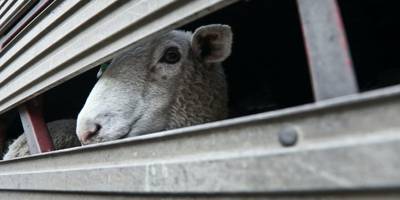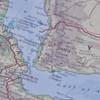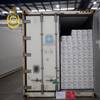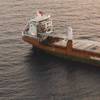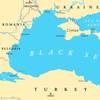Australia Recalls Livestock Carrier Destined for Middle East
The Australian Government has recalled the livestock carrier Bahijah after it diverted from the Red Sea over a week into its voyage to the Middle East.
The Bahijah loaded cattle and sheep in Fremantle, Western Australia, and departed for the Middle East on January 5, 2024. The vessel has an Israeli company name painted in large letters along the side of the hull.
At the time of departure, the Department of Agriculture, Fisheries and Forestry (DAFF) said it was satisfied that the arrangements for the transport of the livestock were appropriate to ensure their health and welfare. However, while allowing a veterinarian and accredited stockperson on board, it did not allow a government appointed independent observer to make the voyage after pausing the deployment of observers on October 9, 2023, due to uncertain security conditions.
As a condition of the Bahijah’s departure in January, the exporter was required by DAFF to lodge contingency arrangements should the vessel not be able to reach its destination. The exporter also loaded additional fodder and veterinary supplies above those required by Australian Standards for the Export of Livestock (ASEL) for the proposed voyage.
Dr Sue Foster, spokesperson for professional veterinary association Vets Against Live Export (VALE), said: “Live export is uniquely and inherently risky, but this was a predictable and preventable risk that was nothing short of foolhardy - allowing an Israeli-owned ship to leave Australia to travel through the Red Sea in January 2024.
“It is not known what contingency plans were in place, but it appears that loading food at East London, South Africa, and taking the ship around the Cape was one of them. If so, then the Department has little to no understanding of the fodder capacity at East London. Tons of appropriate pellets for shipboard augurs are not usually on standby for the odd Australian live export ship that needs them. In addition, one wonders what contingency plans there were for cleaning out six weeks of sheep feces.” The feces is not usually removed for 3-4 week Middle East voyages.
VALE has long considered the fodder reserves on voyages >10 days to be inadequate, but a recent ASEL review did not increase the reserves despite routine exporter under-estimation of voyage lengths.
“This ship will likely exhaust its food or be close to exhausting its food by the time it returns to Australia,” says Foster. “Slaughter should always be as close to the point of production as possible. To load animals on a ship, cart them around the world and bring the back to Australia for slaughter is a completely unacceptable animal welfare practice. Given the volatile situation before this ship sailed in January, the animals should have been slaughtered here and sent as chilled/frozen product.”
The Bahijah, built in 2010, was previously named Ocean Outback, and this is not the first time it has returned laden to Western Australia. In December 2015, while carrying 13,000 animals, it suffered engine problems off the Perth coast and, after nearly two weeks, had to return to Fremantle. The vessel also suffered engine trouble off Australia in 2014.
Former live export veterinarian Dr Lynn Simpson points to the broader risks associated with live export: “Live export of animals poses a plethora of risks to both the animals and the crew. Risks including from mechanical breakdowns, weather and environmental challenges, disease development from poor management and overcrowding, and the lesser understood safety risks from geopolitical developments such as piracy and wars.
“The latest development in the Red Sea with the Houthi rebels is a classic example of why sheep or cattle from any country should be sent as processed meat instead of as live animals.
“If the risk is too high for consenting independent observers to be travelling through those areas, surely innocent animals should not be exposed to potential injury, starvation or death from a war-related attack.”
The Department of Agriculture’s January 20 statement says: “The welfare of the livestock and protecting Australia’s biosecurity remain the department’s top priorities.”



